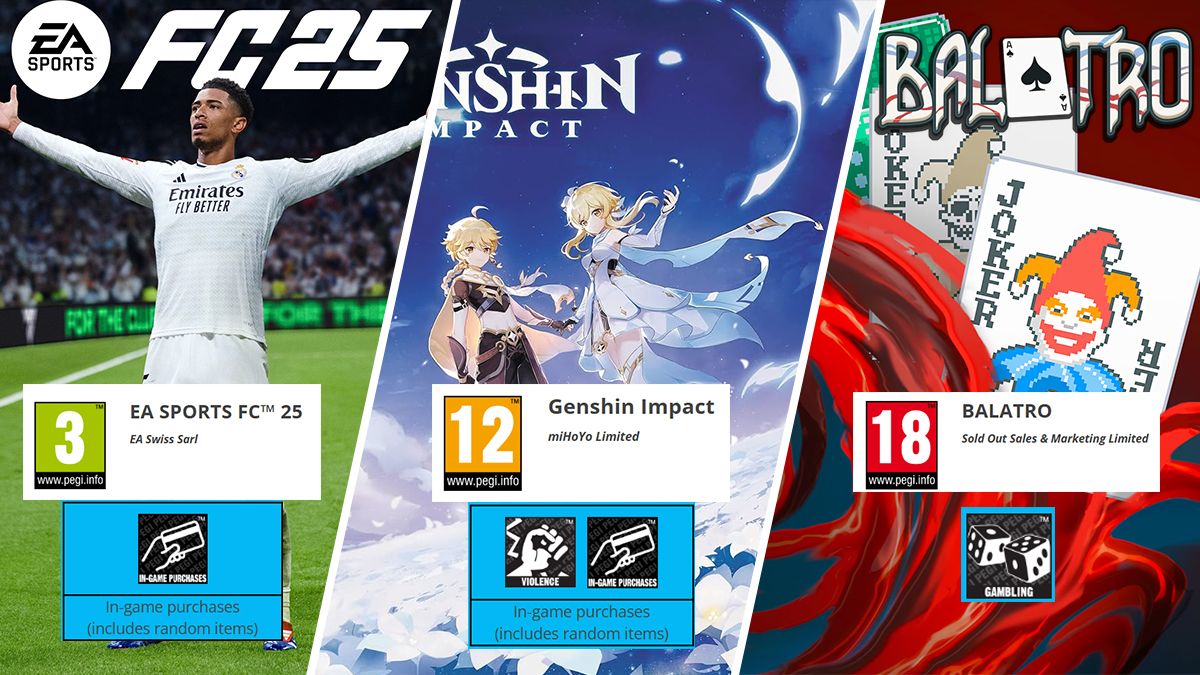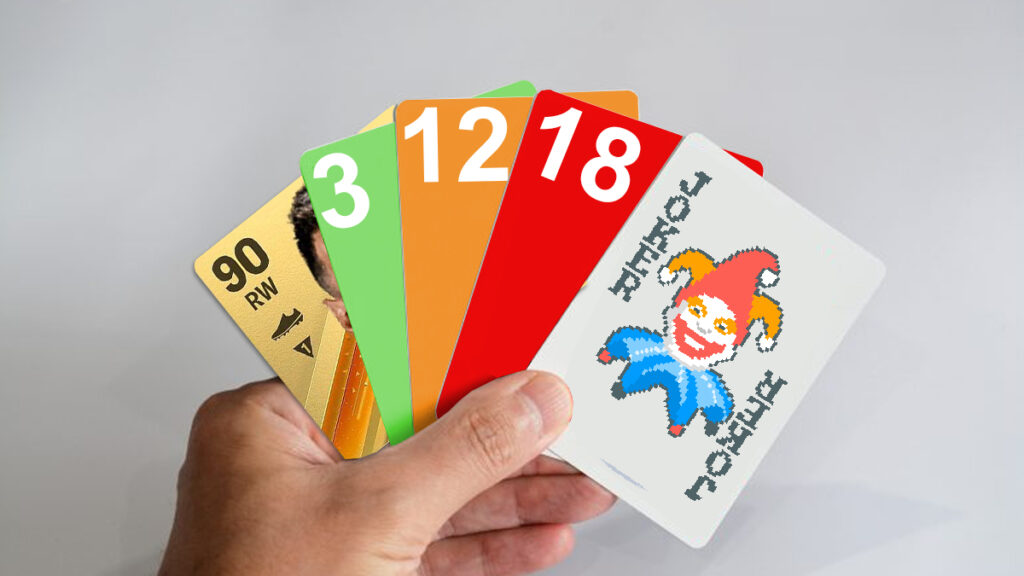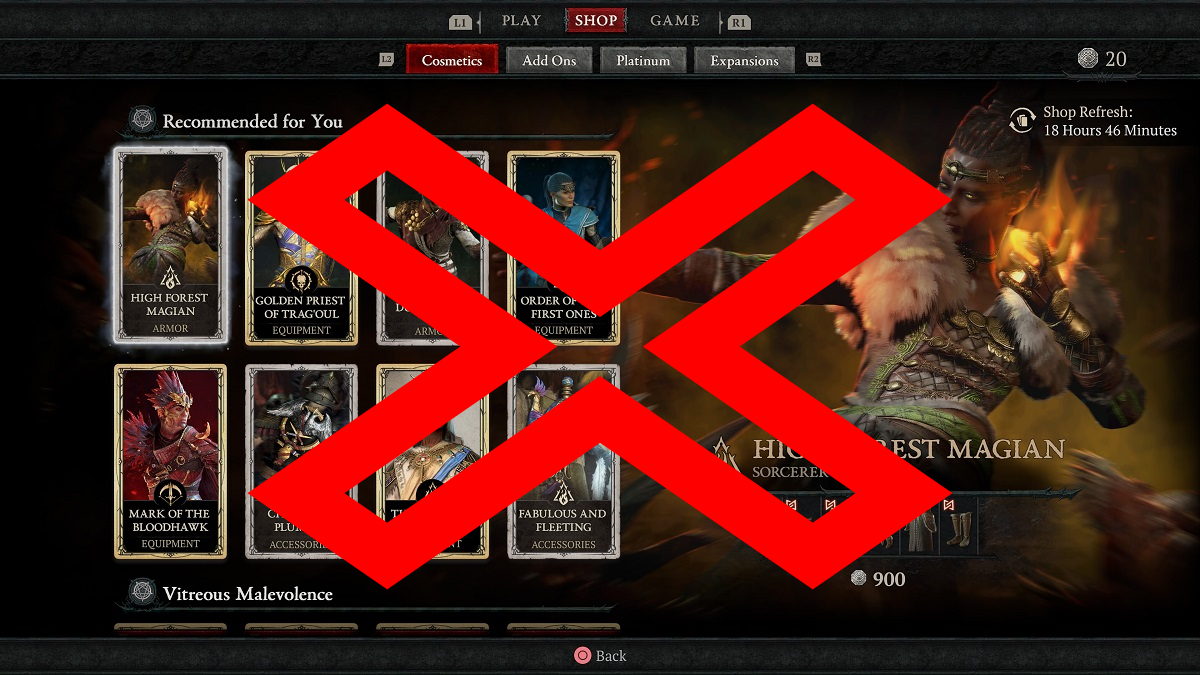Skip To...
While a small roguelike poker game that could was enjoying its The Game Awards spotlight, an unfortunate event struck. On X, the Balatro developer revealed that the European game rating board PEGI gave it an 18+ rating. Clad in an eye-searing red box, it’s the highest age rating the organization can slap onto a game. On the other hand, other high-budgeted games infamous for loot boxes, maintain a child-friendly PEGI 3+ rating. Despite not many players caring about this issue, such a double standard should raise serious questions about PEGI and other rating boards’ priorities.
Misguided Labels Hide the Real Problem: Loot Boxes

Developed by LocalThunk, Balatro has been one of 2024’s standout indie hits, earning praise from players and critics alike. The game involves building poker hands for points, but there are no real wagers, in-game currencies, or multiplayer betting. Players need to simply adapt against random Joker effects and strategize to pull multipliers like Double Tag and achieve high scores. Again, the game literally never asks you to put in more money aside from its initial selling price of $13.5.
Despite this, PEGI rated Balatro with an 18+ rating and a ‘Gambling’ warning, claiming its depiction of poker hands justified the label. In response, LocalThunk quipped on X, “Maybe I should add microtransactions/loot boxes/real gambling to lower that rating to 3+ like EA Sports FC.”
I know, I know. Blaming everything on RNG and microtransactions seems so passe these days. But hear me out for five minutes, or the estimated reading length of this article. His frustration is justified; Balatro involves no gambling, yet PEGI’s judgment penalizes it for a superficial connection to poker. Aside from using playing cards and jargon, the game has barely anything to do with actual poker. Its roguelike element and chip scores turn poker rules upside-down. It begs a question: should all Windows installation coms with the same rating because of Solitaire?
This frustration with PEGI’s rating inconsistency becomes clear when comparing Balatro to EA Sports FC. The soccer ‘revival’ still includes Ultimate Team Packs from FIFA — loot boxes that cost real money and reward players with randomized items. These packs closely mimic gambling, encouraging players to spend repeatedly for a chance at rare cards. This isn’t just this writer’s opinion though because European courts also agreed to call the system actual gambling.
In February 2023, the Austrian court ruled that FIFA‘s Ultimate Packs constituted ‘illegal gambling.’ Countries like the Netherlands and Belgium have outright banned similar systems, recognizing the harm they pose. Despite this, PEGI has given EA Sports FC a PEGI 3+ rating, merely noting its ‘In-Game Purchases.’ We won’t even mention how its mechanics lend itself well to actual betting sites for matches.
This sends the message that gambling-adjacent mechanics are acceptable for children, while card games like Balatro are deemed inappropriate for adults.
PEGI’s leniency toward games with predatory monetization doesn’t stop at EA Sports FC. The 2022 Pokemon Trading Card Game Live only got a 3+ age rating and you could buy packs using Crystals and Rainbow Coins there. Genshin Impact, another hugely popular title, received a 12+ rating despite its gacha mechanics.
Gacha systems, like loot boxes and booster packs, use gambling-like psychological triggers to encourage players to spend real money for randomized characters or items. For children, this can quickly spiral into addiction and financial exploitation, especially considering these mobile games are easily accessible on most Android and iOS devices.
This leniency contrasts sharply with the PEGI 18+ rating for Balatro. Unlike games with microtransactions, Balatro offers no monetized systems. It bears only a superficial resemblance to poker, as players aim for high scores — not winning currencies or items. Yet PEGI slapped it with an equivalent of Adults Only in ESRB’s ratings, focusing on aesthetics while ignoring the actual harm in other games. Incredibly, even the developer behind the game has written into his own will that Balatro can never be used by real gambling companies. Like, ever.
Perhaps The Rating System Needs To Be More Strict?

The inconsistencies in PEGI’s ratings undermine the game rating system’s credibility in general. Ratings are meant to guide parents and players, helping them make informed decisions. However, PEGI appears more concerned with surface-level content — like the inclusion of poker hands — than with the real-world consequences of predatory monetization.
Loot boxes, gacha systems, and pay-to-win microtransactions exploit young players, encouraging repeated spending with gambling-like reward loops. These systems are far more harmful than a card game which provides a strategy-driven experience with no real-money transactions. The rating system fails to protect the audiences it claims to serve by giving real-money-purchase-and-loot-box-heavy games a free pass while punishing harmless titles. Parents, and any players really, deserve clearer warnings about monetization schemes that closely mimic gambling.
Modern gambling isn’t limited to casinos or betting apps — it now thrives in video games, often right under parents’ noses. Loot boxes and gacha are designed to extract money from players, particularly children, using the same psychological hooks as slot machines. Many developers have openly talked about needing psychological experts to design their RNG systems. The organization’s failure to address this issue shows just how outdated gaming rating criteria has become.
PEGI’s harsh treatment of Balatro highlights the system’s inability, or unwillingness, to adapt to modern gaming’s challenges. Developers like LocalThunk are right to call out this hypocrisy. After all, his game doesn’t exploit players or demand their wallets. Meanwhile, games like EA Sports FC and Genshin Impact subconsciously normalize gambling-like mechanics for children. PEGI needs to overhaul its approach, prioritizing the regulation of predatory monetization practices that genuinely harm young players. Until then, developers — and players — are right to question its judgment.
As LocalThunk wryly put it, “The red [18+] logo looks kinda dope.” But the problem it represents? That’s far from cool.










